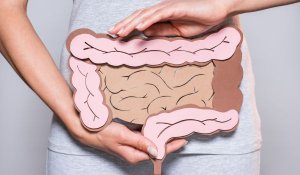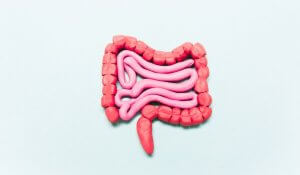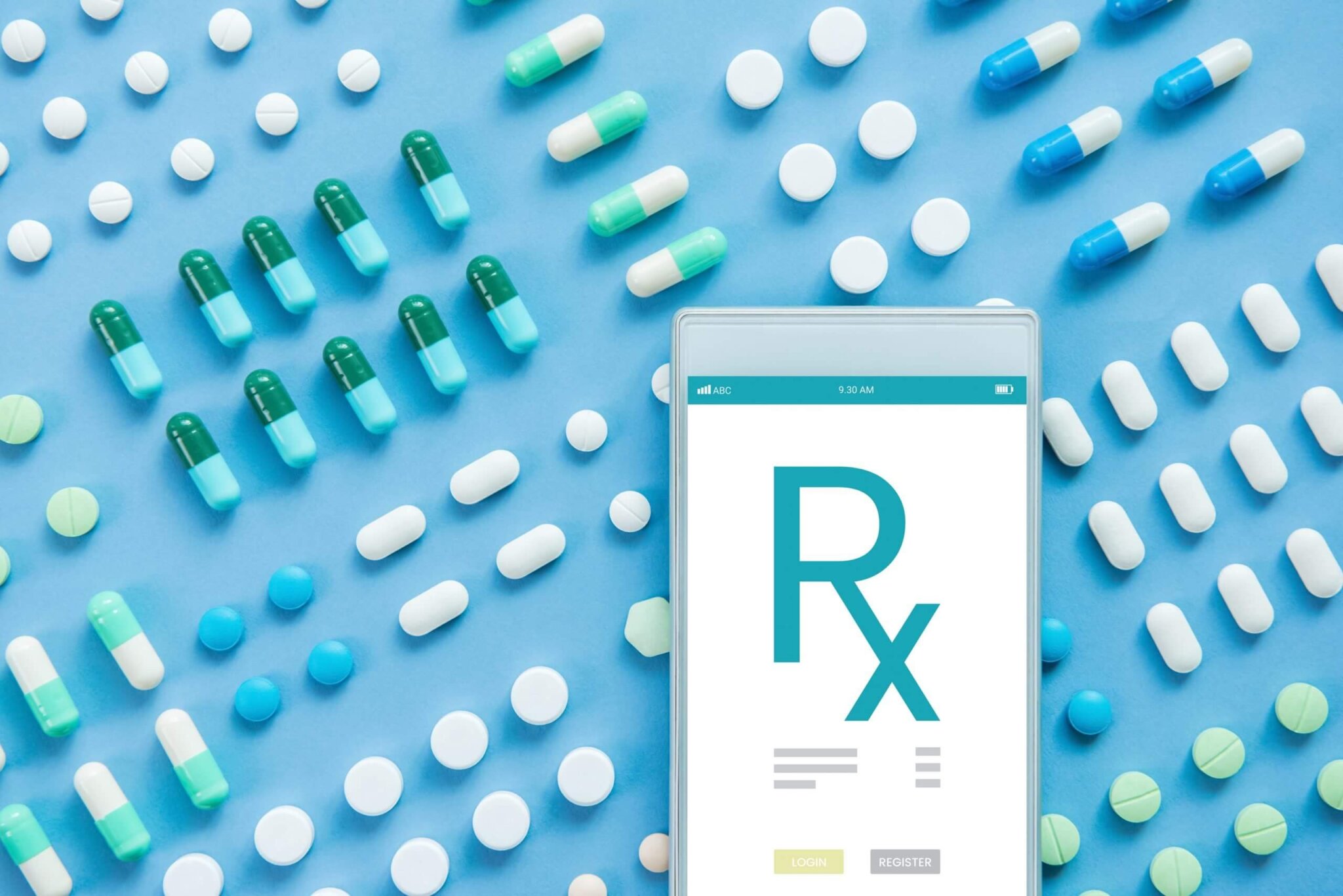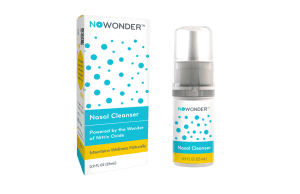 Crohn’s & Colitis Awareness Week occurs in the first week of December each year, highlighting inflammatory bowel diseases (IBD), which include Crohn’s disease and ulcerative colitis. Nearly 3 million Americans are living with IBD.
Crohn’s & Colitis Awareness Week occurs in the first week of December each year, highlighting inflammatory bowel diseases (IBD), which include Crohn’s disease and ulcerative colitis. Nearly 3 million Americans are living with IBD.
Crohn’s disease and ulcerative colitis are types of chronic inflammatory bowel diseases (IBD) with similar symptoms, making them easy to confuse. However, understanding the differences between the two is crucial to adapting your lifestyle to accommodate the condition and finding the most effective treatment. While both are autoimmune disorders that cause the body to attack itself, the distinguishing feature of Crohn’s is that it can affect any part of the gastrointestinal tract. At the same time, ulcerative colitis is limited to the colon and rectum. Differentiating between the two conditions allows for more tailored treatment options, ranging from medications to manage inflammation to nutritional therapies and, in some cases, surgery.
What do ulcerative colitis and Crohn’s have in common?
Colitis and Crohn’s disease share many similarities. They are both types of inflammatory bowel disease (IBD). Both conditions have unknown causes, are often chronic, and can worsen over time if not properly treated. In some cases, surgery may be needed to manage either condition. Both conditions can cause problems outside of the intestines, with joint pain being the most common. About 30 percent of people with Crohn’s disease or colitis experience joint pain linked to their bowel inflammation. Some individuals may also experience issues with their skin, eyes, or kidneys, although this is less common.
There are some basic ways these conditions are similar: many of the symptoms overlap. Common complaints include frequent diarrhea, trouble gaining weight despite eating, and being woken up at night by symptoms. A painful skin rash is often seen with IBD, along with issues like constipation or an urgent need to use the bathroom. Fatigue is another symptom many patients report.
How are Crohn’s disease and ulcerative colitis different? 
Colitis and Crohn’s disease have several key differences:
-
Location
- Crohn’s disease can affect any part of the digestive system, from the mouth to the anus. It can impact different layers of the gastrointestinal tract, ranging from the surface to deeper levels. In some cases, it can cause strictures, which are narrowings in the intestinal tracts. It can also lead to complications, such as fistulas connecting the large intestine to another organ or the skin surface, or abscesses that allow bowel contents to leak. Strictures can sometimes result in total bowel blockages.
- Ulcerative colitis is limited to the large intestine, including the colon and rectum. While ulcerative colitis primarily affects the lining of the colon, chronic inflammation can lead to scarring and the formation of strictures within the colon. Additionally, deep ulcers or fistulas can develop, and if these become infected, they can form abscesses.
-
Diarrhea and constipation
- Bloody diarrhea is a distinguishing feature of ulcerative colitis, but is rare in Crohn’s. Rectal bleeding and bloody diarrhea are classic signs of ulcerative colitis. People with either condition may suddenly feel a strong urge to use the bathroom. They might also experience tenesmus, which is the sensation of needing to have a bowel movement even when the bowels are empty.
- Crohn’s disease can lead to constipation, which means having three or fewer bowel movements in a week. Constipation may happen if a person isn’t eating enough fiber, staying hydrated, or taking some medications. Inflammation in the colon and rectum can also slow down the movement of stool.
- Constipation in Crohn’s disease can cause bowel blockages. This occurs when Crohn’s disease leads to scarring in the intestines, resulting in the walls of the intestine becoming narrower over time. As a result, it becomes harder for stool to pass through. In some cases, people with Crohn’s may need surgery to remove damaged sections of the bowel.
-
Anal fistulas
- People with Crohn’s disease are more likely to develop anal fistulas, which are uncommon in cases of ulcerative colitis. Fistulas are abnormal tunnels that form between the digestive tract and other parts of the body, like the skin or nearby organs. These occur when ulcers break through the intestinal wall. In Crohn’s disease, the most frequent type of fistula happens near the anal area, often causing pain or releasing pus, a white fluid
-
Location of abdominal pain
- Abdominal pain is a common symptom of inflammation in the gastrointestinal tract caused by Crohn’s disease and ulcerative colitis. The timing and location of the pain can vary depending on the type of IBD. In Crohn’s disease, the pain is typically associated with the specific area of the intestine where the inflammation occurs. Pain from colitis usually happens in the lower right or middle part of the abdomen.
-
Nutritional deficiencies
- When the digestive tract becomes inflamed, it can make it difficult for the body to absorb nutrients from food, a condition known as malabsorption. Crohn’s disease can lead to inflammation in any part of the digestive tract, including the small intestine, which is responsible for absorbing nutrients. On the other hand, ulcerative colitis only affects the colon and rectum.
- People with Crohn’s disease often develop nutritional deficiencies early in the illness. Many may have low levels of important vitamins and minerals. Research indicates that over half of individuals with Crohn’s disease lack sufficient vitamin D and folate. Problems with absorbing nutrients can also cause malnutrition and ongoing weight loss.
- Ulcerative colitis can sometimes affect how the body absorbs nutrients, though this happens less often than with Crohn’s disease. When the large intestine, including the colon and rectum, becomes inflamed, it becomes more difficult for the body to absorb water and electrolytes. Electrolytes, such as calcium and sodium, play a crucial role in maintaining fluid balance and supporting the health of bones, muscles, and nerves. In some cases, people with ulcerative colitis may also experience low iron levels.
-
Mouth sores
- One major difference between Crohn’s disease and ulcerative colitis is that Crohn’s can lead to mouth sores. This happens because Crohn’s causes inflammation that can affect any part of the gastrointestinal tract, including the mouth. Painful mouth sores often appear during flare-ups when the disease is more active. These sores typically form between the lower lip and gum or along the sides of the tongue.
-
Treatment with surgery
- Surgery may be suggested for severe ulcerative colitis. For patients who need surgery, a procedure called J-pouch surgery, or ileal pouch–anal anastomosis, is often an option. In this procedure, surgeons create a pouch at the end of the small intestine. This pouch allows waste to move through the small intestine and exit the body through the anus, making bowel movements appear normal.
- Crohn’s disease often returns even after surgery. For patients with severe symptoms, surgery may be necessary to reduce complications. Most patients with Crohn’s undergo a procedure called limited resection, where a small portion of the affected intestine is removed. This surgery helps reset the disease, allowing symptoms to be managed and making further treatment more effective. However, Crohn’s is unique in that it tends to reappear at the exact spot where surgery was performed.
At what age do Crohn’s and ulcerative colitis develop?
 Crohn’s disease and ulcerative colitis are often diagnosed in younger individuals, including teenagers and young adults. However, these conditions can also develop later in life, such as in middle age, or even in children as young as 5 to 7 years old. Early diagnosis is often linked to a more severe progression of the disease. In these cases, medical teams work hard to protect the intestines for as long as possible, aiming to avoid surgeries. The primary goal is to help patients remain in remission for as long as possible.
Crohn’s disease and ulcerative colitis are often diagnosed in younger individuals, including teenagers and young adults. However, these conditions can also develop later in life, such as in middle age, or even in children as young as 5 to 7 years old. Early diagnosis is often linked to a more severe progression of the disease. In these cases, medical teams work hard to protect the intestines for as long as possible, aiming to avoid surgeries. The primary goal is to help patients remain in remission for as long as possible.
Flare-ups in Crohn’s disease and ulcerative colitis occur in cycles. Patients often experience periods when their symptoms worsen, followed by times when they improve or fade away. Remission occurs when the bowel returns to normal function. Clinical signs of remission include reduced inflammation and intestinal healing. Many patients can remain in remission for extended periods and lead active, fulfilling lives.
How can flare-ups be managed in Crohn’s and ulcerative colitis?
During flare-ups, patients may need to change their diet. High-fiber, healthy foods might not be easy to digest during this time. Instead, a bland, low-fiber, low-residue diet is recommended to help the body absorb nutrients more easily and reduce painful symptoms. However, once the inflammation is under control and the person is in remission, a higher-fiber diet is better, and patients may benefit from a fiber and probiotic supplement like The Gut Pack. One of the easier diets to follow when not in an active flare-up would be a Mediterranean diet, which includes foods like olive oil, olives, nuts, and whole grains rich in healthy fats.
Medications for treating conditions like Crohn’s disease and ulcerative colitis are similar, even though the specific drugs may vary.
While there is no cure for IBD, treatment focuses on lowering inflammation levels with the goal of achieving some relief of the symptoms. The most frequently prescribed medications may include:
- Anti-inflammatory drugs (5-ASAs, aminosalicylates) such as Asacol, Pentasa, Canasa, and Mezavant for mild cases
- Corticosteroids like Prednisone for control of severe flare-ups
- Immunomodulators such as Imuran or Neoral to suppress immune activity
- Biologic therapies like Skyrizi, Remicade, or newer agents like Stelara that target specific immune pathways.
Can people with IBD live a normal life?
People with inflammatory bowel disease can live normal lives with proper care, as the condition does not typically affect life expectancy. Medical treatments are constantly improving. As the field of IBD treatment becomes more advanced and diagnoses become more detailed, with the development of more targeted treatments, patients need to be aware of all the options available to them.
Anyone showing signs of Crohn’s disease or ulcerative colitis should speak with a healthcare provider. The provider may recommend a GI specialist who can identify key symptoms to monitor. The specialist collaborates with the patient to monitor the condition and develop personalized treatment options to manage IBD symptoms and enhance overall quality of life. 
FAQs
What is the life expectancy of someone with Crohn’s disease?
Crohn’s disease is not life-threatening, and people with the condition can live as long as those without it. However, it’s important to manage the disease to avoid complications. Crohn’s can raise the risk of other health problems, like colon cancer. Getting regular colonoscopies can help catch colon cancer early, when it’s easier to treat.
Can you get Crohn’s and colitis together?
There have been cases where a person can have both Crohn’s disease and ulcerative colitis at the same time. Cases like this are uncommon and support the idea that Crohn’s disease and ulcerative colitis are two different conditions, not just variations of the same disease.
Does colitis go away?
Ulcerative colitis doesn’t have a cure, but some treatments can help. These usually include medications or surgery. Doctors can help identify ways to alleviate symptoms and, in some cases, even achieve long-term relief.
How do you calm a colitis flare-up?
Focus on reducing inflammation, managing symptoms, and preventing future flare-ups. This can be achieved through a combination of dietary adjustments, medication, stress management, and, in some cases, surgery.
- Make the necessary dietary adjustments:
- Identify and avoid trigger foods. Pay close attention to what you eat and how it affects your symptoms. Common triggers include fatty, greasy, spicy, and high-fiber foods, as well as dairy.
- Eat bland, easy-to-digest foods. Focus on foods like cooked vegetables, white rice, low-fiber pasta, and white bread.
- Consider a low-residue diet. This diet can help reduce the quantity and frequency of bowel movements, potentially alleviating symptoms.
- Stay hydrated. Drink plenty of water to prevent dehydration, especially if experiencing diarrhea.
- Eat smaller, more frequent meals. This can help reduce the burden on your digestive system.
- Medications such as aminosalicylates (5-ASAs) help reduce inflammation in the colon and are often the first line of treatment for mild to moderate UC. Corticosteroids can provide quick relief during flare-ups, but long-term use can have side effects. Immunomodulators and biologics may be prescribed for more severe cases or when other treatments are not effective. Over-the-counter pain relievers like paracetamol (acetaminophen) are generally considered safe for UC pain, but avoid NSAIDs like ibuprofen and naproxen as they can worsen symptoms and cause other problems.
- Stress reduction techniques, such as deep breathing, meditation, yoga, or spending time in nature, can help manage stress and potentially reduce the frequency and severity of flare-ups.
- Adequate rest can help reduce stress and improve overall health.
- Get support from friends, family, or talk to a therapist about your experiences with UC. Support groups can also provide valuable emotional support and practical advice.
- Regular, moderate exercise can help reduce disease activity and fatigue.
- In some cases, surgery may be necessary to manage severe UC. Surgical options include colectomy (removal of the colon) or ileal pouch-anal anastomosis (creating a pouch from the small intestine).
Always consult with a healthcare provider for personalized advice and treatment options.
Is yogurt good for Crohn’s?
Yogurt is a good option for people with Crohn’s disease because it contains probiotics, which can aid in intestinal healing. However, if someone has trouble digesting dairy, consuming yogurt may exacerbate symptoms such as diarrhea and gas.













